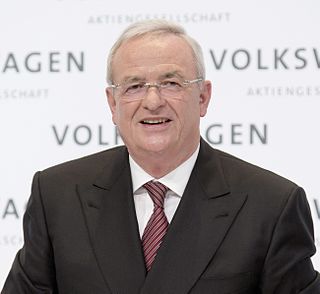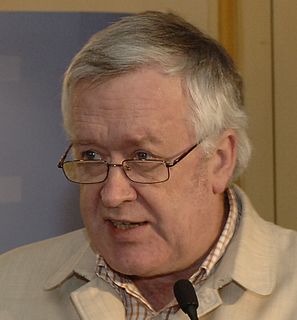Top 568 Co2 Emissions Quotes & Sayings
Explore popular Co2 Emissions quotes.
Last updated on April 14, 2025.
To reduce modern climate change to one variable, CO2, or a small proportion of one variable - human-induced CO2 - is not science. To try to predict the future based on just one variable (CO2) in extraordinarily complex natural systems is folly. Yet when astronomers have the temerity to show that climate is driven by solar activities rather than CO2 emissions, they are dismissed as dinosaurs undertaking the methods of old-fashioned science.
The European Union and environmental advocacy groups use global warming hysteria to advance their own special agendas. The European Union recognizes any significant reduction in CO2 emissions by the United States will significantly reduce its economic output, thereby bringing it closer to the inferior output of European nations.
Eventually we'll use a CO2 tax offset by a reduction in taxes elsewhere alongside a cap-and-trade plan, but the degree of difficulty associated with a CO2 tax far exceeds that with a cap-and-trade plan. We're seeing it's hard to get a cap-and-trade plan and it's much easier to use as a basis for a global agreement than a CO2 tax.
A car produces about one pound of CO2 per mile. There is no problem with collecting the CO2 in the tailpipe, but one might easily end up with a trailer hitched to the car for carrying all this CO2 back to the filling station. The gas burned from a 15-gallon tank would fill up five 60-inch-tall gas bottles.
The nuclear approach I'm involved in is called a traveling-wave reactor, which uses waste uranium for fuel. There's a lot of things that have to go right for that dream to come true - many decades of building demo plants, proving the economics are right. But if it does, you could have cheaper energy with no CO2 emissions.
It is impossible to talk about slowing climate change without talking about reducing CO2 emissions. Equally, it is impossible to talk about adapting to climate change without considering how we will feed ourselves. And it is out of the question that we can adapt agriculture without conserving crop diversity.
Natural gas obviously brings with it a number of quality-of-life environmental benefits because it is a relatively clean-burning fuel. It has a CO2 footprint, but it has no particulates. It has none of the other emissions elements that are of concern to public health that other forms of power-generation fuels do have: coal, fuel oil, others.
For me the two biggest issues are climate change and animal welfare/animal agriculture. And oddly enough animal agriculture is such a contributor to climate change. According to the United Nations, 25% of climate change comes from animal agriculture, so every car, bus, boat, truck, airplane combined has less CO2 and methane emissions than animal agriculture.
I am troubled by the lack of common sense regarding carbon dioxide emissions. Our greatest greenhouse gas is water. Atmospheric spectroscopy reveals why water has a 95 percent and CO2 a 3.6 percent contribution to the 'greenhouse effect.' Carbon dioxide emissions worldwide each year total 3.2 billion tons. That equals about 0.0168 percent of the atmosphere's CO2 concentration of about 19 trillion tons. This results in a 0.00064 percent increase in the absorption of the sun's radiation. This is an insignificantly small number.
The climate system is constantly readjusting naturally in a large way - more than we would ever see from CO2. The CO2 kick [impact of CO2 emissions] is extremely small compared to what is happening in a natural way. Within the framework of a proper study of the sun-climate connection, you don't need CO2 to explain anything.
I am quite surprised and rather disappointed by the loneliness, isolation and indeed demonisation the sadly misunderstood CO2 is experiencing. Thus, upon leaving the parliament, I am contemplating the foundation of an organisation called 'The Friends of Carbon Dioxide'. Membership will of course be open to all, including the plants whose very existence depends on CO2. I think this organisation's slogan, 'CO2 is not pollution', self-selects. It has both accuracy and melody to commend it.
It's likely that CO2 has some warming effect, but real proof of that hypothesis is tricky. You have to confirm by observation exactly how the CO2 changes the situation at different altitudes in the atmosphere and in different regions of the world. For example, CO2 is supposed to warm the upper air faster than the surface, but the measurements don't show that happening. When the CO2 effect is eventually pinned down, it will probably turn out to be weaker and much less worrisome than predicted by the global warming theorists.
... The reality is that atmospheric CO2 has a minimal impact on greenhouse gases and world temperature. Water vapor is responsible for 95 percent of the greenhouse effect. CO2 contributes just 3.6 percent, with human activity responsible for only 3.2 percent of that. That is why some studies claim CO2 levels are largely irrelevant to global warming.
These proven positive consequences of elevated CO2 are infinitely more important than the unsubstantiated predictions of apocalypse that are hypothesized to result from global warming, which itself, may not be occurring from rising atmospheric CO2 levels. The aerial fertilization effect of atmospheric CO2 enrichment is the only aspect of global environmental change about which we can be certain; and to restrict CO2 emissions is to assuredly deny the biosphere the many benefits that accrue from this phenomenon.
Putting aside for the moment the question of whether human industrial CO2 emissions are having an effect on climate, it is quite clear that they are raising atmospheric CO2 levels. As a result, they are having a strong and markedly positive effect on plant growth worldwide. There is no doubt about this.
Absolutely love the new campaign from the Optimum Population Trust: do your bit for addressing climate change by having fewer children - or even no children. The lifetime CO2 emissions of a UK citizen amount to 750 tonnes (the equivalent - apparently - of 620 return flights between London and New York), so the extra 10 million by which our population will rise between now and 2074 will, over their lifetimes, emit around 7½ billion tonnes of CO2..."births averted" is probably the most single most substantial and cost-effective intervention that governments could be using
Statistics compiled by the German Federal Motor Transport Authority highlight how successfully we have reduced fuel consumption. A few years ago, the CO2 emissions for the BMW brand were at well over 200 grams per kilometer. In 2009, that number was at 159 grams. This puts us below our direct competitors.
CO2 is a minor player in the total system, and human CO2 emissions are insignificant compared to total natural greenhouse gas emissions. Therefore, lowering human CO2 emissions will have no measurable effect on climate, and continued CO2 emissions will have little or no effect on future temperature....While controlling CO2 emissions from burning fossil fuels may have some beneficial effects on air quality, it will have no measurable effect on climate, but great detrimental effects on the economy and our standard of living.
It is in fact necessary to reduce CO2 emissions. There is no reason why we shouldn't spend our vacations on (the North Sea island of) Sylt instead of in the Seychelles, or drive more economical cars - for the sake of preserving increasingly scarce resources if nothing else. But that won't enable us to stop climate change. As long as China, India and the United States continue the way they have been, what we Germans do is more or less irrelevant.
We can no longer completely avoid anthropogenic climate change. At best, limiting the temperature rise to two degrees is just about possible, according to optimistic estimates. That's why we should spend more time talking about adjusting to the inevitable and not about reducing CO2 emissions. We have to take away people's fear of climate change.














































